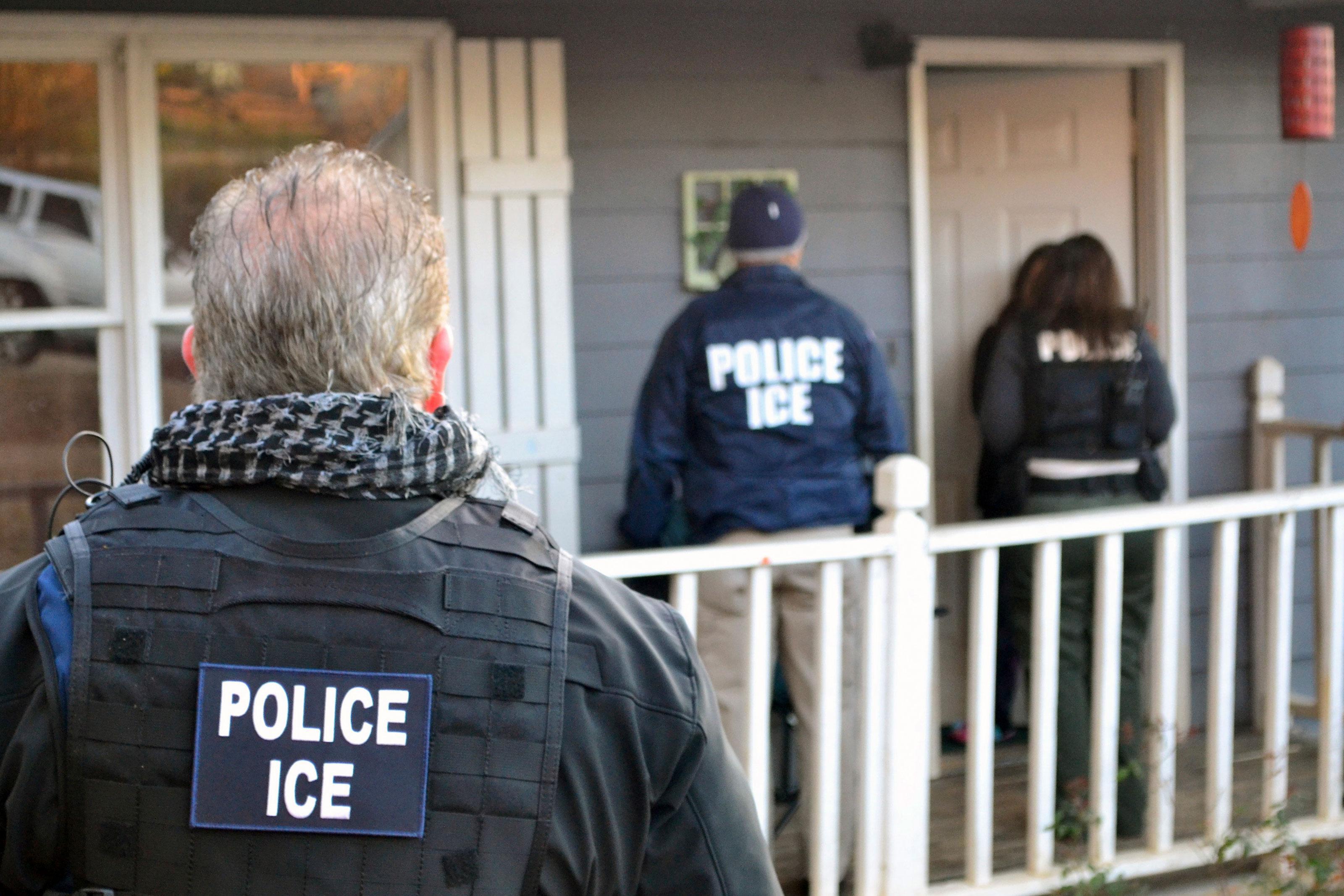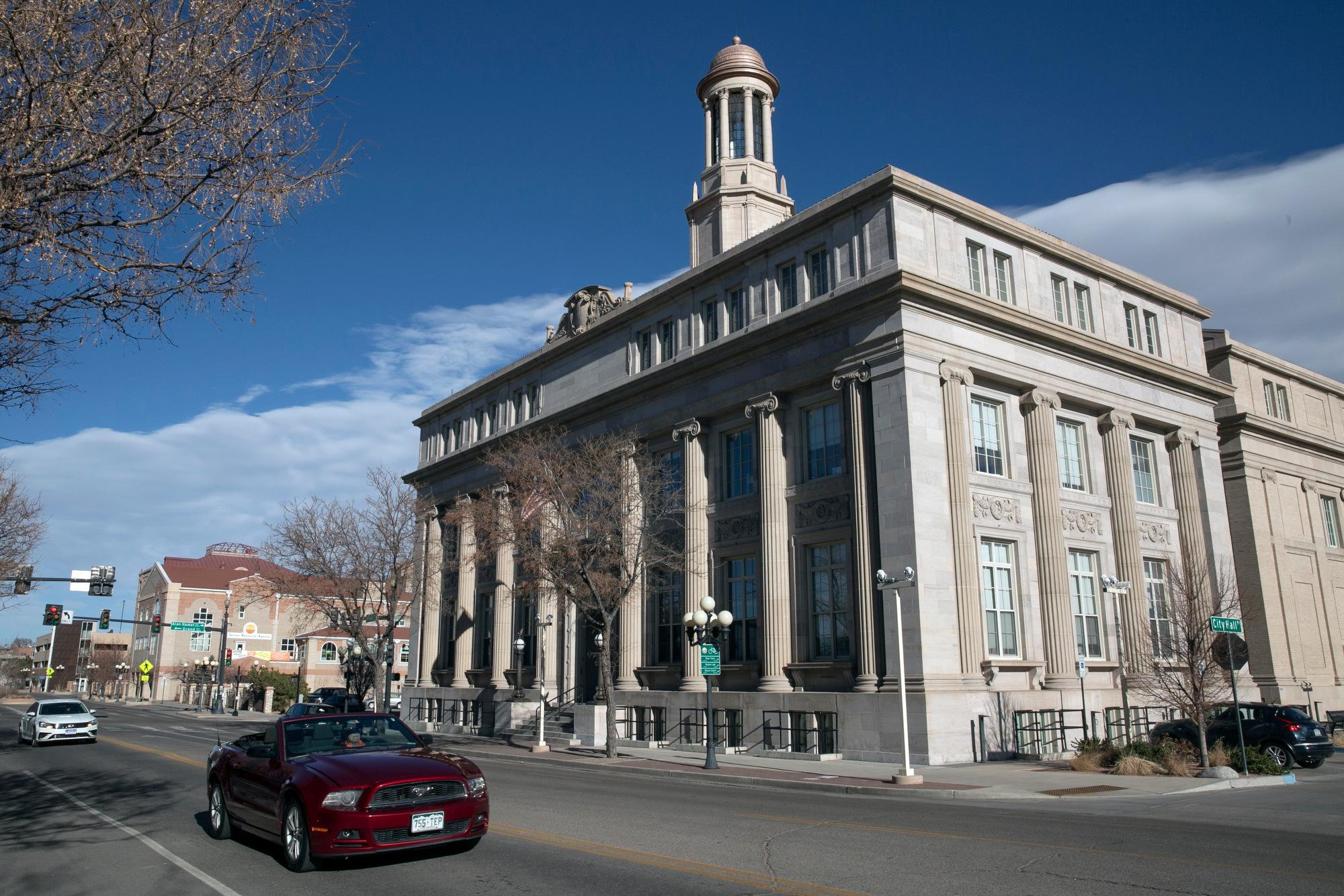

Immigration enforcement in Colorado is much easier to understand and less micromanaged under President Trump, Denver’s chief immigration officer said in a rare interview.
Jeffrey Lynch, Immigration and Customs Enforcement's director of enforcement and removal operations, called morale high among local agents because they have more freedom than under the previous administration.
This means no top-down dictates from Washington. Officers are given the power out in the field.
“Maybe somebody is worth arresting and putting into jail, maybe somebody isn’t worth it — based on their background, based on humanitarian factors, based on what our resources are,” Lynch said. “The officers like having that discretion.”
- Colorado Matters: ICE Chief Jeffrey Lynch Opens Up About DACA And Deportations
Removals have more than doubled in a year in Colorado and Wyoming, from 1,033 to 2,535 through September of last fiscal year, the most recent numbers available. Arrests are up too, though not by as much — from 2,284 in 2016 to 2,746 through September 2017.
Lawyers and advocates for immigrants say the landscape in the trenches has dramatically changed, and they have shifted their advice for anyone living in the United States without status.
“Individuals who have lived here for decades are now being picked up in ways that are new and are really disturbing and devastating to their families,” said Mekela Goehring, a lawyer and the executive director of the Rocky Mountain Immigrant Advocacy Network. “Essentially anyone who is undocumented in the United States is in danger.”
Cities are grappling with stepped up immigration enforcement. The Denver City Council last August passed a law banning city employees from communicating with ICE. More recently, the mayor boycotted an invite to the White House after the Trump administration threatened to subpoena the police department over whether it is aiding immigration enforcement.
Immigration lawyers in the Denver metro area say they are busier than ever.
Groups are holding seminars to teach undocumented people to know their rights, including going door to door to coach people not to open if immigration authorities come knocking. Colleges are offering help to pay for application fees to apply for the Obama-era Deferred Action for Childhood Arrivals — and lawyers are working pro bono to answer questions.
Any interaction with law enforcement, lawyers say, can spark removal proceedings. They are urging people to be careful.
“If someone gets pulled over for having a tail light out or something, we see people getting put into detention for that type of an infraction because the police officer may contact ICE,” said Laura Lunn, an attorney with RMIAN. “Probation officers are calling ICE so ICE can go pick them up directly from their probation appointments.”

Enforcement director Lynch said there has always been collaboration between local police and federal immigration officers. But under the Trump administration there has been a shift to arrest people for immigration violations, even if they have no prior convictions.
Over the past two years, officials have gradually grown capacity at ICE’s GEO Group-operated detention facility in Aurora up to about 800 beds now, he said.
“We are going to place a detainer on them, we are going to arrest them, and we’re going to remove them,” Lynch said.
The director of enforcement and removal operations noted he wouldn’t treat someone who previously had DACA status differently than someone who didn’t. But he said the rumors that immigration agents are doing checkpoints or round ups is inaccurate and that criminals are still a priority.
“We are no longer enforcing the law by agency policy or memos or directives,” he said. “Every alien ... is on the board for targeting based on the law books.”
That includes people like Ingrid Encalada Latorre, who has taken sanctuary in a Boulder church to avoid deportation to Peru. She was convicted of a felony for possessing false papers she used to work. She was going to return to her native country but didn’t want to break up her family: her husband is the father of her youngest son and both of her kids were born in the United States.

She plans on staying in the church through Trump’s presidency, if she has to.
“It pains me talking with my older son, Bryant,” Latorre said, through a translator, in a recent interview at the church. “He says, ‘this is my country, I was born here’ and he doesn’t know my country, Peru. He’s never been to Peru and he says ‘I want to be here, I belong here and you belong here. I don’t want to live anywhere else.’”
Another immigration case has grabbed attention in Colorado. Melecio Andazola Morales, a construction worker with four American-born children, including a daughter at Yale University, was recently deported right before the holidays. His immigration attorney, Hans Meyer, has been outspoken about the current administration.
“One of the smartest things the devil ever did was to tell the world he didn’t exist,” Meyer said. “When they say that they’re just enforcing the law now, that’s an easy, palliative statement... Right now the Trump immigration platform is nothing short of brutal and racist.”









